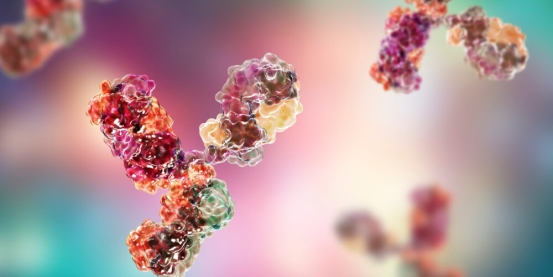

In recent years, antibody-based cancer therapy has emerged as a cornerstone of precision oncology. These engineered proteins have revolutionized how clinicians detect and treat cancer, delivering targeted attacks on malignant cells while preserving surrounding healthy tissue. As scientific understanding deepens, cancer antibodies are driving the evolution of safer, more effective, and individualized cancer treatments.
In recent years, antibody-based cancer therapy has emerged as a cornerstone of precision oncology. These engineered proteins have revolutionized how clinicians detect and treat cancer, delivering targeted attacks on malignant cells while preserving surrounding healthy tissue. As scientific understanding deepens, cancer antibodies are driving the evolution of safer, more effective, and individualized cancer treatments.

Cancer antibodies are bioengineered molecules that mimic the immune system’s natural ability to identify harmful cells. By binding to tumor-specific antigens, they mark cancer cells for destruction or interfere with their growth signals.
These antibodies can either act independently or serve as delivery systems that transport chemotherapy agents, toxins, or radioactive substances directly to the tumor site, reducing collateral damage and side effects.
Modern oncology employs several forms of therapeutic antibodies, each with distinct applications:
Monoclonal antibodies: Single-target antibodies used for specific tumor markers. They are often paired with imaging agents for diagnosis or cytotoxic compounds for therapy.
Bispecific antibodies: Engineered to attach to both immune and tumor cells, these amplify immune responses and improve tumor cell killing efficiency.
Conjugated antibodies: These antibodies act as delivery vehicles, bringing attached drugs or radioactive isotopes directly to tumor cells for precise treatment.
Cancer antibodies eliminate tumor cells through multiple coordinated mechanisms:
Immune recruitment: They draw immune cells to the tumor site, initiating antibody-dependent cellular cytotoxicity.
Signal disruption: By blocking growth signals, antibodies halt tumor progression and induce apoptosis.
Targeted cytotoxic delivery: Conjugated antibodies ensure that toxic agents only affect malignant cells.
Immune system regulation: Certain antibodies modulate immune pathways, reactivating dormant immune responses against cancer.
Antibody technology has transformed immunotherapy approaches worldwide.
Immune checkpoint inhibitors remove molecular “brakes” that suppress immune responses, empowering T cells to attack cancer effectively.
Combination therapies utilize antibodies with other treatments, including targeted drugs or radiation, to enhance therapeutic synergy.
Personalized immunotherapy uses patient-specific tumor profiles to tailor antibody design for maximum benefit.
Antibody-based treatments have proven remarkably effective in achieving precision targeting, minimizing damage to healthy tissues, and improving overall treatment outcomes. They have extended survival rates and enhanced quality of life for patients with cancers once considered incurable.
Nonetheless, therapy resistance and production costs remain obstacles. Tumor heterogeneity can reduce antigen availability, and some patients may experience immune-related reactions. Continued advancements in genetic engineering, antibody optimization, and production efficiency aim to overcome these barriers.
Ongoing clinical research is expanding antibody applications across a range of cancers—from breast and lung to leukemia and melanoma. Scientists are developing multi-functional antibodies that combine tumor targeting, immune modulation, and drug delivery within a single molecule.
Future therapies may leverage AI-driven design and nanotechnology to create even more adaptive and precise antibodies. Personalized medicine will play an increasingly vital role—aligning treatment strategies with each patient’s molecular and genetic landscape to ensure superior results and fewer side effects.
Cancer antibodies are redefining cancer care, providing tools to diagnose and treat malignancies with accuracy once thought impossible. As innovation accelerates, these therapies continue to evolve toward greater precision, efficiency, and safety. By merging biotechnology, immunology, and personalization, antibody-based treatments are charting a promising path toward the future of cancer medicine.